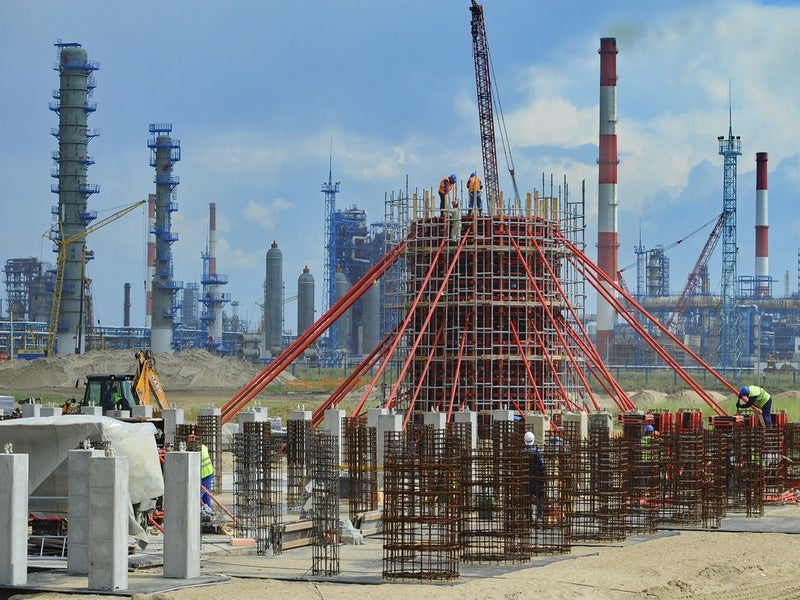

Gazprom Neft has started construction of a delayed coking unit (DCU) at its Omsk Refinery in Russia, after receiving approval from the country’s certification body, Glavgosekspertisa.
The construction project is part of the second phase of modernisation programme at the refinery, aimed at enhancing refining volumes and improving output of light petroleum products.
Apart from light petroleum products such as gasoline and diesel fuels, the new facility will allow increasing production of petroleum coke, which serves as a raw material for the aluminium industry.
Gazprom Neft processing, logistics and sales deputy CEO Anatoly Cherner said: "Implementing the DCU project addresses a number of major objectives in terms of the technological development of the Omsk Refinery.
“Apart from which, the energy efficiency of technological processes will be improved, and operating costs optimised through the deep refining of oil residues.
"Construction of the CDU, together with other projects that form part of the second phase of modernising the plant, allow us to achieve a synergistic effect, bringing the Gazprom Neft Omsk Refinery closer to achieving the best international standards, increasing refining depth to 97% and yield of light petroleum products to 80%."
How well do you really know your competitors?
Access the most comprehensive Company Profiles on the market, powered by GlobalData. Save hours of research. Gain competitive edge.

Thank you!
Your download email will arrive shortly
Not ready to buy yet? Download a free sample
We are confident about the unique quality of our Company Profiles. However, we want you to make the most beneficial decision for your business, so we offer a free sample that you can download by submitting the below form
By GlobalDataThe CDU facility comprises five sections, including a coking section, a gas fractionation unit, a section for cleaning liquefied hydrocarbon gases, as well as an amine regeneration unit.
Currently, infrastructure works being taken up as part of the construction exercise at the plant include facilities for dehydration, storage, and the transportation and shipment of coke to railway cars.
In relation to the delayed coking process used for refining heavy oil raw materials, Amec Foster Wheeler holds the licence for the technology.
Completion of construction of the facility is expected by 2020. The Omsk Refinery has an installed capacity of 20.89 million tonnes of oil per annum.
Image: The first phase of modernisation at the refinery is focused on improving the quality of oil products. Photo: courtesy of Gazprom Neft PJSC.


